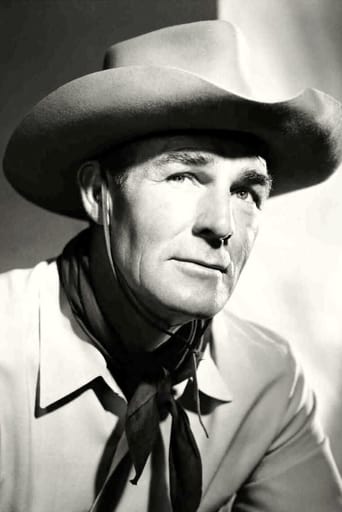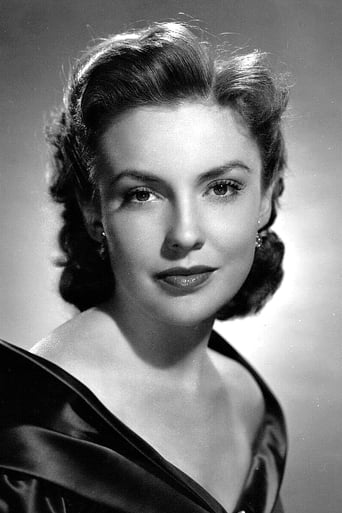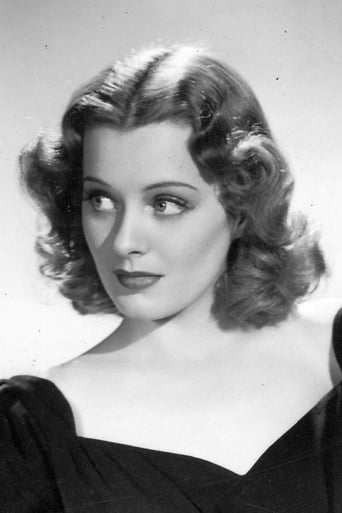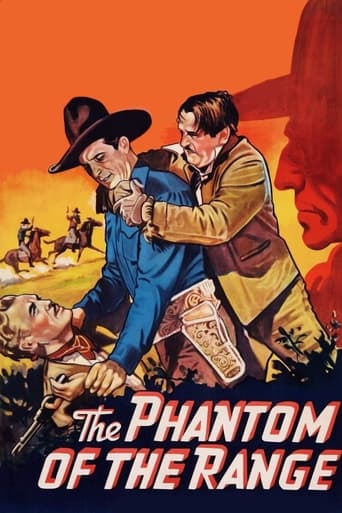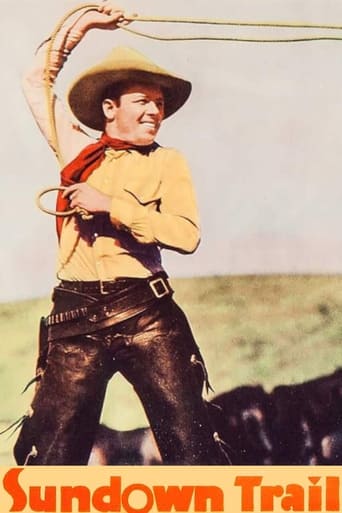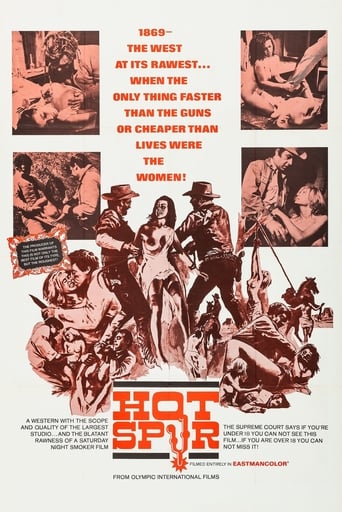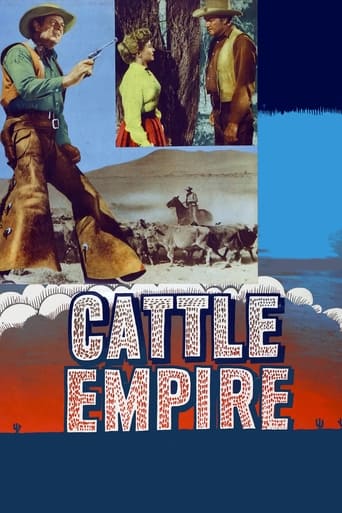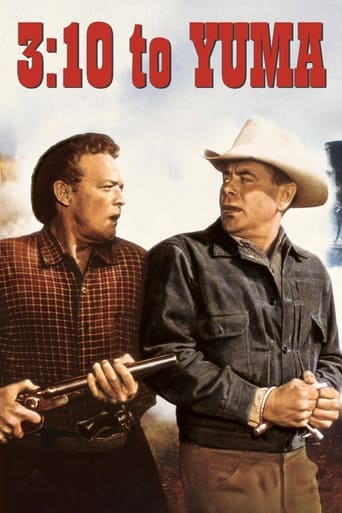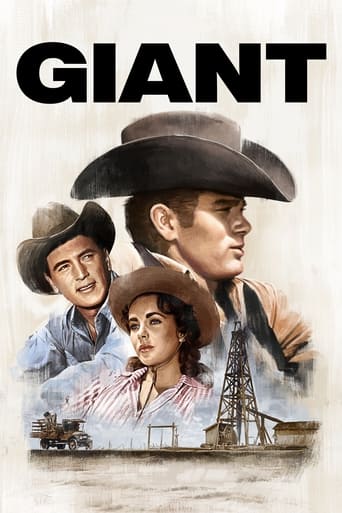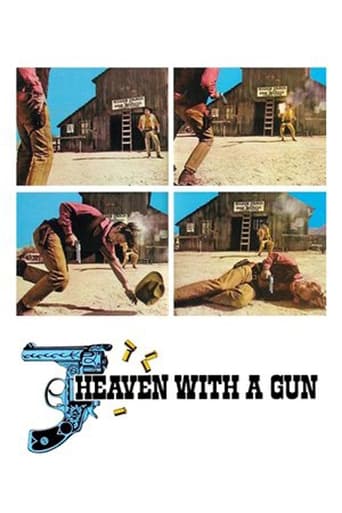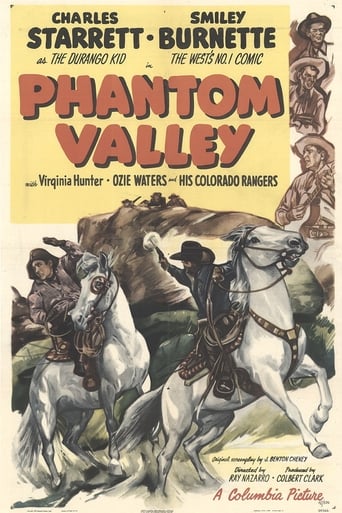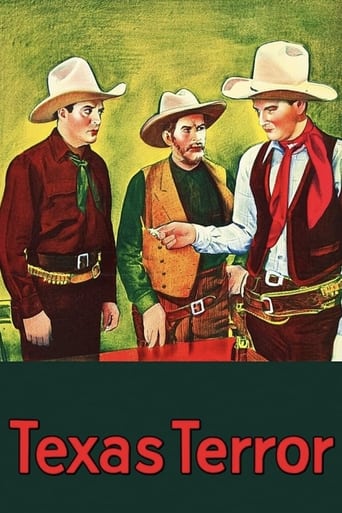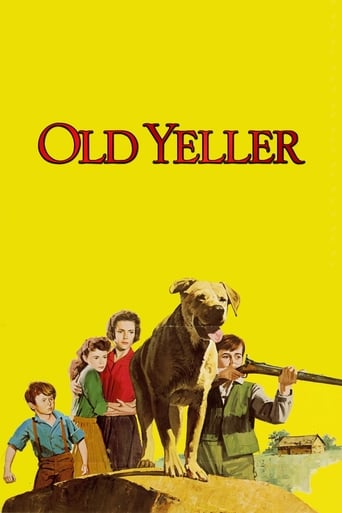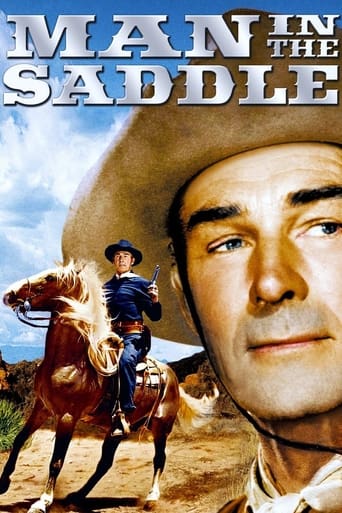
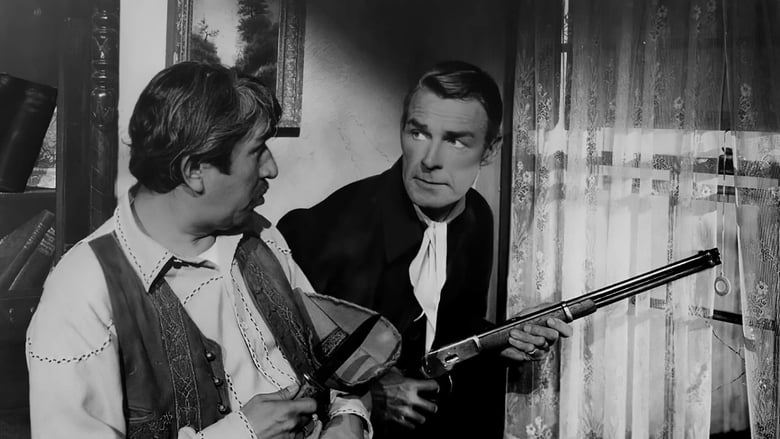
Man in the Saddle (1951)
A small rancher is being harassed by his mighty and powerful neighbor. When the neighbor even hires gunmen to intimidate him he has to defend himself and his property by means of violence.
Watch Trailer
Cast


Similar titles
Reviews
There's a small lake that straddles the boundary separating Will Isham's Skull Ranch and Pay Lankershim's land. Isham (Alexander Knox), a powerful, determined and jealous megalomaniac, offers $50,000 cash if Pay sells his ranch to him this night, Isham's wedding night. It's worth maybe $9,000. There's enough water for both our herds, Pay says. "You don't get the idea," Isham says with a tumbler of brandy in his hand. "I'd only own half a lake. I don't own half of anything, Lankershim. I own it all, lock, stock and barrel. That goes for anything. Whatever I have is mine and mine alone. I'll share with no one." Now Skull's boundary is up against Owen Merritt's land...and it will only be a matter of time before Isham goes after Owen (Randolph Scott). He's even brought in a hired gun to speed things along. And the woman Isham just married? Turns out Laurie Bidwell (Joan Leslie) is the woman Owen loves. She made her choice, however, because she wanted position and money, and that meant Isham, not Owen. After Owen nearly gets killed in a stampede engineered by Isham's men, Laurie is beginning to have doubts about her choice. She'd better remember what Isham told Pay: "Whatever I have is mine alone. I'll share with no one." When Owen's men start getting killed, he decides to do some killing of his own. It's not long before it's just Owen Merritt against the power of Skull, and that means Will Isham and his hired guns. Thank goodness Owen has a few loyal ranch hands and one friend, spunky, feisty Nan Melotte, the blonde young owner of a small ranch next to Owen's. We know things are going to get much rougher in the next hour. Man in the Saddle may be a B western, but it's a Randolph Scott B western. With me, that usually means a strong story even with clichés, most often a good villain or two, enough action to quickly pass the time and, of course, Scott. He was a big guy who could come across as grim, judgmental and dead serious. He also had perfected the persona of an honorable man of action. He had the screen presence to carry even B westerns. He had no trouble dominating his films, even when playing against an alpha male like Lee Marvin. I've always found a good deal of pleasure watching a Randolph Scott western. Joan Leslie has a much more complicated character to play than most B movie westerns call for. Her Laurie Isham comes from a hardscrabble past. She loves, in her way, Owen. She marries Isham because she yearns for position and security. She winds up trying to be loyal to both. Leslie manages to carry it off so well we sort of admire Laurie and how she's trying to handle the fix she's put herself in. To see Joan Leslie at her freshest and friendliest, find a copy of The Sky's the Limit. At barely 18 she stars opposite Fred Astaire and shares a fast, funny song and dance routine with him, "A Lot in Common with You." Leslie just about keeps up with Astaire and he makes it seem easy for her. When she can manage just two air-borne turns (which she does with grace and precision), he hits three but places himself just a little in front of her to disguise the difference. For those fond of pound-'em-into-the-ground fistfights, Man in the Saddle features a lulu. Scott and John Russell, an equally big guy who plays a man with a vicious temper who has a hankerin' for Nan, start walloping each other in a mountain shack, then slip-slide down a rocky, snow covered mountainside going after each other with fists, rocks and tree limbs. The stunt doubles earned their money with this one. Man in the Saddle is no classic, but it turns out to be one of the better westerns Scott made during this period.
I have to say this is one of the better Randolph Scott pictures that I've seen from his career previous to the "Ranown" films. It has a much more compelling story than a lot of standard oaters from the 40s and 50s, with not one but two interesting female characters.Scott plays Owen Merritt, a tough rancher who is provoked into a range war by the uber-competitive Will Isham (Alexander Knox). Isham has married a former flame of Merritt's (Joan Leslie) and can't stand the thought that she might have residual feelings for Merritt. Also in the mix is the more tomboyish Ellen Drew who plays a neighboring rancher who helps Merritt and falls in love with him.There's a very interesting social subtext to the story with the two women -- the Leslie character is from a poor rural background but wants to escape her history, while the Drew character is more grounded and self-aware and doesn't want to run from her own life. The Knox character is also interesting, psychotic and yet noble. Richard Rober plays the more coldhearted gunslinger who he hires to do his dirty work, and the dynamic between Rober and Knox is interesting as well.I quite enjoyed it and will gladly watch it again. It's not hugely memorable, and the ending is a bit of a let-down, but it has quite a few nice moments and a good western atmosphere with a more interesting story and characters than most. Andre de Toth's direction is very efficient and stately.
It seems that all the comments here are somewhat ordinary, and miss some of the fantastically extraordinary touches of de Toth. True the western drags in places, but there are moments that only a director of the quality of de Toth can create. His humor was always very sly, here no exception. For another instance look at the way he handles Gary Cooper in Springfield Rifle. But back to the case in point. Near the start Scott and Williams are about to leave and this 75 year old lady comes through the door carrying a bundle and says, excuse me gentlemen. Look at it carefully and you will see it is a fantastic grace note, and very funny. Then look at the way Scott is rolling a cigarette when Isham pulls up, talks over his shoulder etc. Also why does Clagg break a stick to get Ellen Drews attention coming up the hill? Its almost perverse and never explained. Then the end in as good a dust storm as was ever filmed short of the one in Treasure of Sierra Madre. And saving the best for last, the fight scene between Scott and Clagg, is simply stupendous. Over quickly, very real, tense, the long roll down the hill, etc. It may be the best single fight ever on the screen. These alone raise de Toth into a level reached by very few other directors of westerns. His subtlety is very great: in fact his sense of humor is still, for me, the very best. Nobody better.
By Randolph Scott standards of the 1950s, this is a disappointing and heavy-handed star western. Two or three of the characters could be dispensed with, while two or three other characters could be given more prominence. (The humour needs to be completely rewritten.) De Toth handles the action well - as always - but his grasp of the overall narrative is weak.


